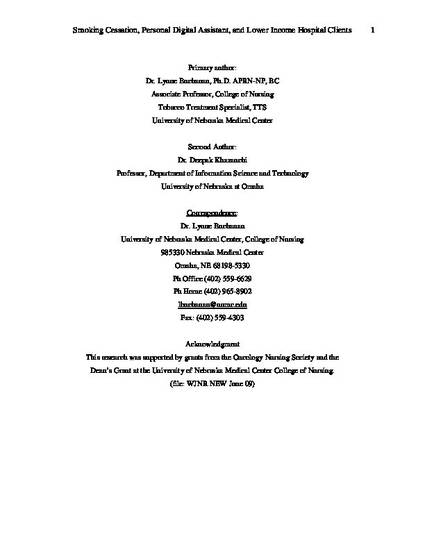
This article describes a pilot study to explore use of a personal digital assistant (PDA) to sustain smoking cessation after discharge in clients with socioeconomic vulnerability. The major aim is to describe technology acceptance (perceived ease of use, usefulness, and attitude), portability, technical difficulty, satisfaction, and use time. The sample includes 31 medical surgical clients with average age of 47.35 (±13.3), average household income of $13,629 (±8,204), average number in the household of 2.67 (±2.22), and average education of 11th grade. The results demonstrate mean use time of 9.28 (±3.23) hr, or about 1 hr over 8 weeks. Technology acceptance responses indicate the PDA is viewed as useful to the task of smoking cessation but is not perceived as easy to use. The most beneficial aspect is the portability. There are benefits to a PDA smoking cessation intervention but more study is needed before it can be used in practice.
Available at: http://works.bepress.com/khazanchi/27/

The published version of this article can be found here: http://wjn.sagepub.com/content/32/3/281.abstract.